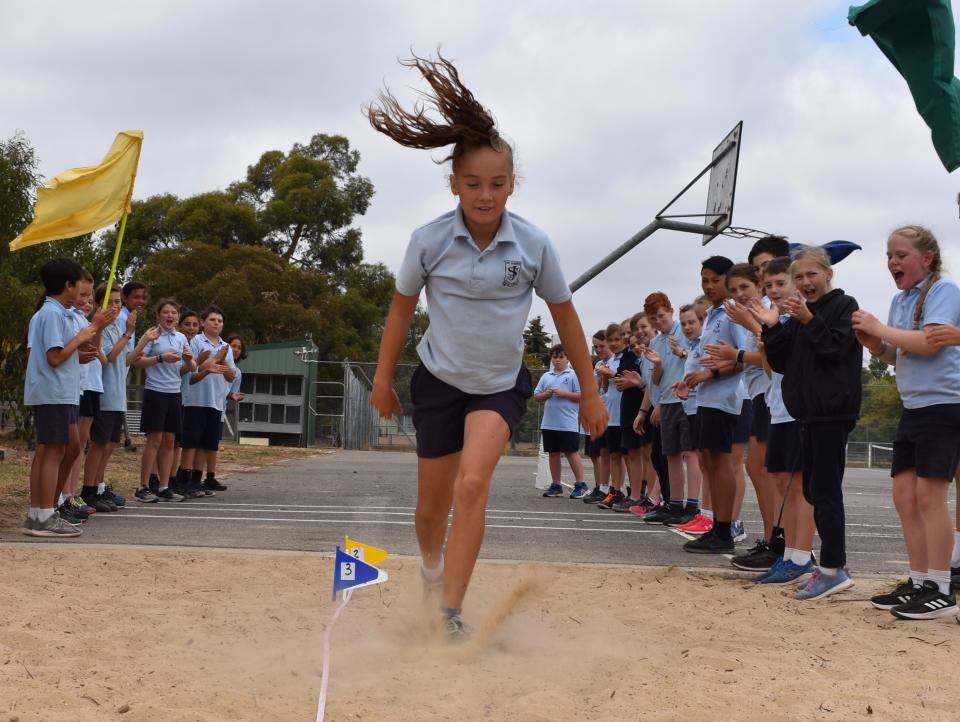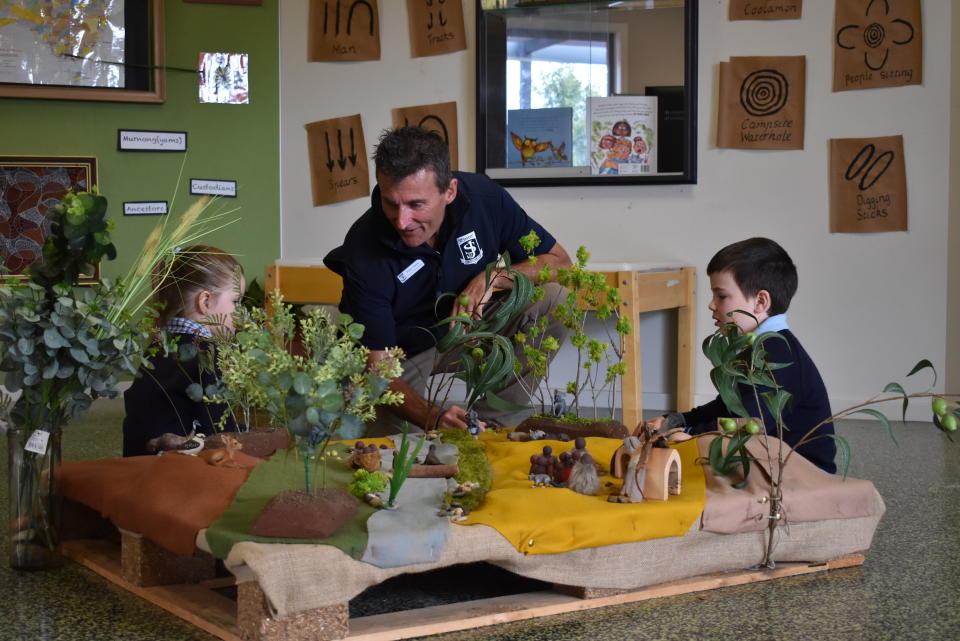Why this school is banning certificates and ribbons
A Victorian primary school’s decision to ban rewards such as certificates, medals and ribbons as well as in-house competition has been welcomed by its pupils and parents alike.
St James’ Parish School near Ballarat, 100km west of Melbourne, has moved to eliminate extrinsic rewards after seeing significant improvements in the children’s mentality.
Co-principal Peter Fahey told Yahoo7 News the school began to roll out the initiative 15 years ago but it had taken a lot of work from all involved to get to the level they’re at now.
“It’s been a long adventure – we started this process 15 years ago,” he said.
“At that point we saw a lot of our children quite anxious and stressed and we realised there was a craving for them to be social beings again.

“The focus is now on learning as opposed to extrinsic motivations such as rewards.”
Mr Fahey said the transformation has been “massive” not only on the sporting field but in the classroom.
Mr Fahey explained the school would record each pupil’s competency level and statistics at the start of the year and would then shift the focus on learning via feedback to better the children.
“Throughout the rest of the term we practised. Children received feedback on developed skills and then participated in school sports,” he said.
Change vindicated by Sports Day
The pinnacle of the process took place on Thursday when the school enjoyed their annual sports day where the students competed against their own personal bests instead of each other.
“It was like a huge burden had been eliminated. Parents could come and enjoy the love of the sport, the love of engaging and coming to a social event, talking, it seriously was amazing,” Mr Fahey said.

The process has been gradual over the years, according to Mr Fahey, with certificates and prizes known as extrinsic rewards eventually taken away.
“We moved over time to eliminate certificates, we then eliminated weekly ceremonies. We substituted that with educating staff who pursued feedback on learning throughout curriculum,” he said.
“The difference is now our children are competing for the love of the sport. They’re not after this external reward. They get their dopamine and serotonin fix from the actual improvement and engagement in other people.”
He said the response from the pupils and their parents has been remarkable, with everyone on board with the move.
“A wonderful joy and spark in the process of learning happened,” he revealed.

“The parents were engaged, they weren’t competing. They started to love learning.”
Mr Fahey said the turnout from parents and extended family was evidence of how effective the system has become.
“I haven’t had one parent in all of this time question the move. They’re so engaged with the whole process. Not just the sports day but the whole curriculum,” he said.
Education expert concerned over move
Glenn Savage, a senior lecturer in education policy at the University of Western Australia, believes schools should throw caution to the wind following in the footsteps of St James’ Parish School.
“It’s difficult to make one-size-fits-all statements because, in any given classroom, young people will invariably respond differently to different approaches,” Dr Savage told the ABC.
“Removing rewards and prizes from schools can risk establishing unrealistic norms in the classroom that shelter and insulate young people from the real world.”

Dr Savage said the removal of such rewards may even have a lasting effect years in advance when applying for university or jobs for example, with the pupils failing to have any success to distinguish themselves from other hopefuls.
Yet Mr Fahey pointed out to Yahoo7 News their move isn’t an “opposition view”.
“What we found is that children are far more agile. They understand that in the world there is competition and they experience it outside of school,” he said.
“They’re involved in competitions such as interschool sports and our children go to these events.
“They’re achieving so much more, their progression is outstanding.”
Do you have a story tip? Email: y7newsroom@yahoo7.com.au.
You can also follow us on Facebook and Twitter and stay up to date with the latest news with Yahoo7’s daily newsletter. Sign up here.




